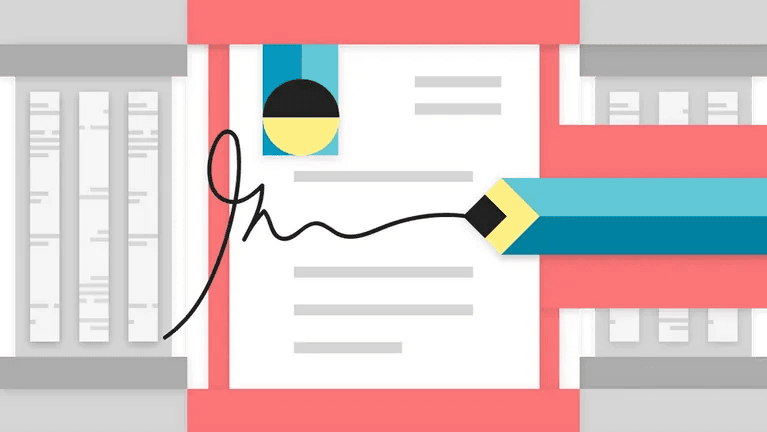Electronic signatures aren’t new. For years, they’ve been used to complete documents around the world and the rise of remote work has only increased their popularity. Many organizations now rely on e-signatures for paperless agreements and transactions that can be completed anywhere, anytime. Despite their widespread adoption, however, there is still confusion around the legality and proper use of e-signatures.
In this post, we’ll review e-signature laws, the factors that make an e-signature legally binding, the types of documents that can be electronically signed, and the proper way to implement e-signatures.
Understanding the legality of electronic signatures
To understand the legality of electronic signatures, you first examine the laws governing them. Each country has its own legal framework that governs e-signatures including:
Let’s look at the United States specifically. The United States government passed the Electronic Signatures in Global and National Commerce Act (ESIGN) along with the Uniform Electronic Transactions Act in 2000- the former being enforced on a federal level and the latter on a state level. According to both acts, the use of electronic signatures is legally binding and covers a variety of capture methods such as signing with a finger on a touchscreen, typing the signer’s name into a webform, or using an embeddable e-signature solution like Anvil Etch.
What makes an electronic signature legal and enforceable?
While laws vary from country to country, several principles make electronic signatures legally binding almost anywhere in the world.
1. Intent to sign
Just like a traditional wet ink signature, electronic signatures are only enforceable if there is evidence of the signer’s intent. Intent can be proven in several ways including typing the signer’s name and clicking a “submit” or “accept” box. Drawing a signature is also acceptable.
2. Consent to sign
In addition to intent, implicit or explicit consent to sign electronically needs to be demonstrated. This can usually be achieved by including a consent clause with a checkbox that signers can click to accept.
3. Record retention
Lastly, there must be a record kept of all electronically signed documents that all signing parties can securely access. Anvil Etch automatically sends copies of signed documents to all parties involved and stores a record in our secure database.
What types of documents are eligible for e-signature?
As long as e-signatures meet the criteria above, they can be used for most agreements and transactions including:
- Insurance claims
- Purchase orders
- Offer letters and onboarding documents
- Patient intake forms
- NDAs
- Real estate transactions
In the U.S. however, there are certain circumstances in which e-signatures aren’t accepted and wet ink signatures are required. Some of these exceptions include:
- Official court documents
- Adoption or divorce agreements
- Termination of life or health insurance policies
- Wills and trusts
Easily capture signatures electronically using Anvil
Another important factor to consider when signing documents electronically is the technical implementation of the solution you’re using. A key function of e-signatures is ensuring authenticity of both the signer and the document. To do this, proper e-signature solutions use a certificate-based encryption process. Each time a document is signed by a person, the e-signature provider also “signs” the document using an official cryptography certificate that is issued by a recognized certificate authority. The cryptography process mathematically encrypts the document and bits of information on the signer ensuring that the underlying document and signer can be verified at a future date.
Ready to implement secure e-signatures for your agreements? Get in touch sales@useanvil.com or upload a PDF to try Etch e-sign yourself).

